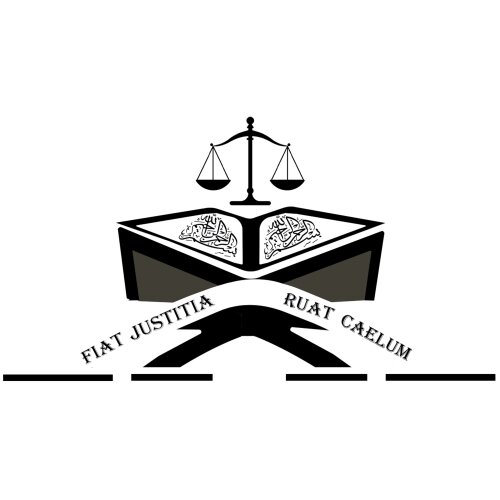Best Administrative Lawyers in Pakistan
Share your needs with us, get contacted by law firms.
Free. Takes 2 min.
Or refine your search by selecting a city:
List of the best lawyers in Pakistan
About Administrative Law in Pakistan
Administrative law in Pakistan deals with the rules and regulations that government agencies must follow. It governs the administrative actions of these agencies and ensures they operate within the framework of the law. This branch of law is critical in maintaining the rule of law and ensuring transparency and accountability in public administration. Administrative law encompasses actions such as issuing licences, enforcing regulations, and managing public welfare programs. In Pakistan, administrative law ensures that government actions are legal and fair, providing mechanisms to oversee and challenge the exercise of administrative power.
Why You May Need a Lawyer
There are several situations where individuals or businesses might require legal assistance in the realm of administrative law:
- Challenging a government decision or regulation that affects your rights or interests.
- Dealing with licensing or permits required for businesses, industries, and professions.
- Navigating disputes involving public sector employees or agencies.
- Seeking redress or compensation from government agencies.
- Appealing against administrative decisions or actions that you believe are unjust or illegal.
In these cases, a knowledgeable lawyer can help interpret the law, guide administrative hearings, and represent your interests.
Local Laws Overview
In Pakistan, administrative law is governed by several statutes, regulations, and legal principles. Key aspects include:
- Tribunals and Commissions: Various tribunals and commissions are established to oversee specific administrative areas, such as tax, labor, and procurement.
- Judicial Review: The right to challenge administrative decisions through judicial review ensures that government actions comply with the law.
- Fundamental Rights: The Constitution of Pakistan guarantees fundamental rights, which serve as a check on administrative powers.
- Procedure: Administrative procedures are often less formal than court proceedings, focusing on fairness and efficiency.
- Accountability: Mechanisms such as the National Accountability Bureau (NAB) and the Federal Ombudsman deal with public grievances against administrative actions.
Frequently Asked Questions
1. What is administrative law?
Administrative law regulates the actions of government agencies, ensuring they act within the law and respect citizens' rights.
2. How can I challenge a government decision?
You can file a complaint with the relevant government department, seek review by an administrative tribunal, or initiate judicial review proceedings.
3. What is a judicial review?
Judicial review is the process by which courts examine the actions of administrative bodies to ensure legality and fairness.
4. What is the role of administrative tribunals?
Administrative tribunals are specialized bodies that resolve disputes in specific areas, such as labor rights and tax issues, outside regular courts.
5. How do I obtain a government license or permit?
You must apply to the respective government department, meeting all regulatory requirements and providing the necessary documentation.
6. Can I appeal an administrative decision?
Yes, most administrative decisions can be appealed through internal review, tribunals, or judicial review, depending on the specific regulations.
7. What is the Federal Ombudsman?
The Federal Ombudsman is an independent body addressing public complaints against administrative injustices and delays caused by government departments.
8. When should I consult an administrative lawyer?
Consult an administrative lawyer if you face complex regulatory issues, unfair decisions by a government body, or need representation in an administrative hearing.
9. What is the National Accountability Bureau (NAB)?
NAB is an agency tasked with eliminating corruption and ensuring accountability within government institutions and officials.
10. Can a lawyer help with public sector employment disputes?
Yes, lawyers specialized in administrative law can provide guidance and representation in disputes involving public sector employment or laws governing public servants.
Additional Resources
For further assistance, consider reaching out to these resources:
- Federal Ombudsman of Pakistan
- National Accountability Bureau (NAB)
- Pakistan Bar Council
- Provincial Service Tribunals
- Law firms specializing in administrative law
Next Steps
If you need legal assistance in the field of administrative law, consider the following steps:
- Identify the specific nature of your legal issue.
- Gather all relevant information and documentation.
- Consult with a lawyer who specializes in administrative law to discuss your case.
- Explore potential legal remedies, such as filing for a judicial review or formal complaint.
- Follow the advice of your legal counsel to navigate through administrative processes or disputes.
Lawzana helps you find the best lawyers and law firms in Pakistan through a curated and pre-screened list of qualified legal professionals. Our platform offers rankings and detailed profiles of attorneys and law firms, allowing you to compare based on practice areas, including Administrative, experience, and client feedback.
Each profile includes a description of the firm's areas of practice, client reviews, team members and partners, year of establishment, spoken languages, office locations, contact information, social media presence, and any published articles or resources. Most firms on our platform speak English and are experienced in both local and international legal matters.
Get a quote from top-rated law firms in Pakistan — quickly, securely, and without unnecessary hassle.
Disclaimer:
The information provided on this page is for general informational purposes only and does not constitute legal advice. While we strive to ensure the accuracy and relevance of the content, legal information may change over time, and interpretations of the law can vary. You should always consult with a qualified legal professional for advice specific to your situation.
We disclaim all liability for actions taken or not taken based on the content of this page. If you believe any information is incorrect or outdated, please contact us, and we will review and update it where appropriate.
Browse administrative law firms by city in Pakistan
Refine your search by selecting a city.

















